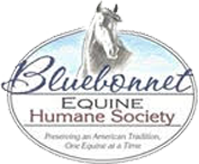By Sharon Martin-Holm
Owning an aged horse can be one of the most rewarding activities of horse ownership, but these golden oldies require some special care and attention. Here are some topics of interest for the owner of the aged horse:
Arthritis
Just as older humans experience degeneration of the joints, so do older horses. Mainly the weight-bearing joints (in the legs) are affected, but the spine can be affected as well. Several things exist that you can do to help your horse age gracefully and minimize the impact of arthritis. First, feed a well-balanced diet, but don’t allow your horse to become too fat as the extra weight causes extra stress on the joints.
Second, your old horse needs plenty of exercise. If he’s sound—keep riding him, although probably not as far or as fast as you have in the past! But exercise in the form of regular riding, stretching exercises or turnout helps keep those joints moving and lubricated. Stalling an older horse is not a good idea unless it’s under orders from a veterinarian to treat a specific condition.
Some owners have found that adding antioxidants like vitamins C and E to the diet helps the arthritic horse, and others swear by neutraceuticals such as glucosamine and chondroitin. Treatments are also available through your veterinarian that involve injections into the joint to reduce swelling and inflammation or to boost the lubrication within the joint.
Cancer
Old horses are much more prone to cancer, and certain types of cancer become fairly common as horses age.
“Cholangiocellular carcinoma” attacks the bile duct of the liver. If the whites of your horse’s eyes turn yellow (jaundice) and he’s losing weight, get to the vet immediately.
A “granulosa cell tumor” occurs on the ovaries of female horses. If your mare becomes uncharacteristically aggressive, or if she – ahem – starts acting like a stallion, take her to your vet for a palpation and possibly blood tests.
A “lipoma” is a fatty tumor that grows in the fatty material that surrounds the intestines. These can cause colic and must be surgically removed.
“Melanomas” are dark skin tumors that occur commonly on the skin of gray horses or horses with pink skin. “Squamous cell carcinoma” is another type of skin cancer that can occur on the outside skin. This type of skin cancer is most commonly seen on the face, eyelids and sheath, or on the mucous membranes lining the mouth, throat and esophagus. “Sarcoids” are yet another type of tumors that are seen on the skin, usually as large, lumpy growths.
“Pituitary adenomas” are tumors that cause Cushing’s disease, and “thyroid adenomas” occur in the neck.
Colic
Colic is the number one killer of senior horses. This happens for a variety of reasons, but you can take simple steps to minimize your horse’s risk. Make sure that your horse is on a good de-worming program. Keep him well hydrated and encourage increased water intake. Regular exercise helps keep the gut moving as well. Keep lots of fiber in his diet—if he can no longer eat hay and grass, add some soaked hay or alfalfa cubes to his diet. Soaked beet pulp is a good source of fiber as well. Use a complete feed made for senior horses to ensure he is getting the proper balance of nutrients.
Go easy on anti-inflammatory medications like Bute. This can cause damage to the sensitive lining of the stomach and intestines and provoke illness. Cushing’s Disease – This is a hormone imbalance caused by a malfunctioning pituitary gland. This disease can manifest in a variety of ways, but the most commonly seen symptoms are curly hair that doesn’t shed, muscle wasting, laminitis/founder, increased water consumption and urination, and energy loss. Some horses are easily kept comfortable just by managing their environment: clip them in hot weather and provide shade and fans, don’t allow them to get fat or overeat lush grasses, and keep de-worming schedules and farrier visits up to date. Other horses will need medications to keep them comfortable. Talk to your vet if you have concerns about Cushing’s in your horse.
Heaves
Also called COPD, or Chronic Obstructive Pulmonary Disease, heaves is the equine equivalent of asthma. This is seen more commonly as horses get older and can manifest as coughing, decreased exercise tolerance, hard breathing with minimal exertion, or any combination of these. Try to determine what aggravates your horse’s breathing, then remove the offender. Some horses are better out of the barn, some are better out of the pasture. Large round bales of hay are a prime suspect. Dusty arenas and moldy, dusty hay are also notoriously problematic for horses with heaves.
Laminitis/Founder
Many things can cause laminitis in your older horse. In fact, each one of the previous topics can contribute. Arthritis in one leg may make your horse founder on the “good” leg that has been carrying the majority of weight. Cancers in the GI (gastro-intestinal) tract contribute to colic, and colic for any reason can precipitate laminitis due to the large amount of toxins released into the bloodstream when your horse is extremely ill. Laminitis is a notorious symptom of Cushing’s disease, and the steroids administered to horses with heaves in order to aid breathing can also cause laminitis. The key point is to stay alert! If other things are occurring in your horse’s body/healthy that could result in laminitis, be extra vigilant. Watch how your horse stands and walks. If he becomes lame or sore or wants to lie down too often, get him to a vet immediately. Many horses with laminitis can be saved, but time is of the essence.
